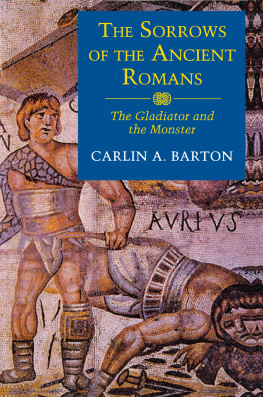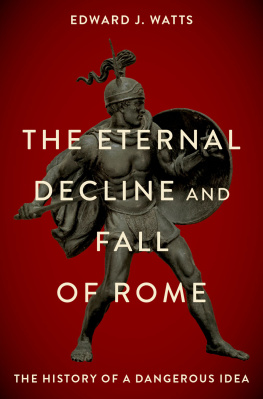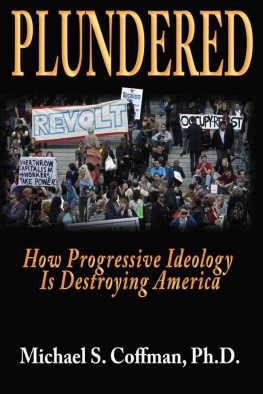One
The Sociological Perspective
Introduction
People have always been interested in why people do things, why some people seem to get along with others, and why some people are always in conflict. Many people become so frustrated with others that they feel that life would be easier if they could just isolate themselves and avoid any interaction with others. Would it not be great to avoid interpersonal conflicts and instead enjoy the liberating freedom to quietly pursue ones own individual interests? Unfortunately, that just is not the way it works.
By definition, humans are social animals. This means that we are destined to live our entire lives in association with other humans. We naturally form social groups to more efficiently take care of our most basic needs of shelter, subsistence, education, security, entertainment and, of course, reproduction. In fact, psychologists warn us that isolation can easily cause emotional damage. Humans simply need other humans to live healthy, balanced lives.
If this is true, then why does it appear that every society has certain people within it who are antisocial, who seem to go out of their way to disrupt the cohesiveness of the group? Why murder, why incest, why theft, why gossip? Why is it that humans, with all our reasoning ability and countless philosophical debates over morality, ethics, and the true nature of the human spirit and condition, have created societies that promote social conflict, competition, and stratification? Is it impossible to create a society whereby all humans have the opportunity to reach their own individual potentials without prejudice, discrimination, and conflict? These are the questions that are at the core of modern sociology; a field of study that maintains that progress in human compatibility, equitability, and even equality, is possible. But is it?
Self-Examination
Anthropologists Carol and Melvin Ember (2015) laid out the basic assumption underlining social science in the following:
The idea that it is impossible to account for human behavior scientifically, either because our actions and beliefs are too individualistic and complex or because human beings are understandable only in other-worldly terms, is a self-fulfilling idea. We cannot discover principles explaining human behavior if we neither believe such principles exist nor bother to look for them. The result is assured from the beginning; disbelief in principles of human nature will be reinforced by the failure to find them. If we are to increase our understanding of human beings, we first have to believe it is possible to do so.
Social science, in which sociology is one branch, tries to explain observable human behavior via the scientific methodology. The Embers were noting that it is possible to understand human behavior; that it is not unique or mystical, that there are predictable patterns. The sociological approach, however, tends to focus on these patterns of human behavior; and in many ways, this helps perpetuate generalizations and stereotypes. For some people, this approach seems too vague. They feel that such generalizations resulting from a focus on patterned behavior ignores individuality and the exercise of free will.
The main opposition, however, is that many people still maintain that human behavior is subject to divine intervention, random luck, or other supernatural forces that are beyond the scope of scientific analysis. If one maintains that humans are not subject to natural laws or that individual behavior is too complex, then social science is not going to be your cup of tea. Therefore, instead of looking for the sociological variables that shape domestic violence or drug abuse, one could possibly maintain that such behavior was sinful and driven by satanic temptation; the devils work. A social scientist would have a difficult time testing the devils influence. How does one quantify the devils influence on a persons behavior?
In contrast, a social scientist could look for religious ideological patterns that shape certain behaviors and attitudes regarding child abuse, violence, and even substance addiction. Faced with these contrasting worldviews, the question becomes: do we just accept that supernatural or mystical forces drive human behavior, or do we examine and test for quantifiable and nonmystical variables to explain human behavior? In other words, is someone abusive because the devil made them do it, or is it because they have chosen to be abusive following a lifetime of exposure to abuse, crime, poverty, and chemical addiction? Which approach seems most likely to shed light on human behavior? Which approach empowers humans to understand and improve society?
Why Sociology?
Sociology is the study of human behavior in the context of group dynamics. It focuses on the interplay between the individual and the group. Sociologists, therefore, are interested in how social groups influence individual behavior. Social groups have the potential to not only help an individual survive, but they can also limit ones potential by restricting access to material goods and prestige. Many sociologists have concluded that individual choice is not limitless; it has borders; borders that are determined by the group and may even be reinforced through Draconian measures within a formal justice system. For example, the violence triggered by the Protestant Reformation in Europe (ca. 14501650 CE) which challenged the status quo of Catholic Europe, is an illustration of the constraint that group think can play on individual behavior. Individuals that questioned the values and norms of their own religious group at the time put their lives at risk. At a time when religion dictated every aspect of ones life, including the perception of basic human behavior, the suggestion that humans were not subject to Gods will, was unfathomable. Nevertheless, the continual violence and social rigidity of sixteen century Europe, by both Protestants and Catholics, troubled an increasing number of people who could not mesh the harsh reprisals by religious and political authorities while espousing divine authority with their perception of a loving, forgiving, deity. It was not that people were turning away from their faith, but simply questioning the blind adherence to religious dogma championed by religious and political institutions. As a result, in a broad sense the historical development of sociology reflected a desire to find a different approach to understanding human behaver than from a simplistic religious and moralistic perspective. This desire took shape under the four following historical forces.
Age of Discovery
Historians point out that the various voyages (ca. 14001700 CE) that Europeans undertook to explore the world, in hopes of finding a quick passage to the Orient (Asia, meaning China, India, and the Spice Islands of Malaysia), had a major impact on the European worldview. In a very short period of time, Europeans were introduced to a vast array of cultures along the coasts of Africa and the Americas. Many of these aboriginal cultures were totally unknown to European scholars and sailors. People wondered about the origins and diversity of these new cultures and how they related to European history. The need to understand this cultural diversity was initially driven by commercial interests but quickly was replaced by a need to justify colonial policies and cultural conflicts. As Europeans colonized and dominated non-European territories in the Americas, Africa, and Asia, the need to understand their aboriginal adversaries and Eastern competitors became paramount in the quest for world dominance.








